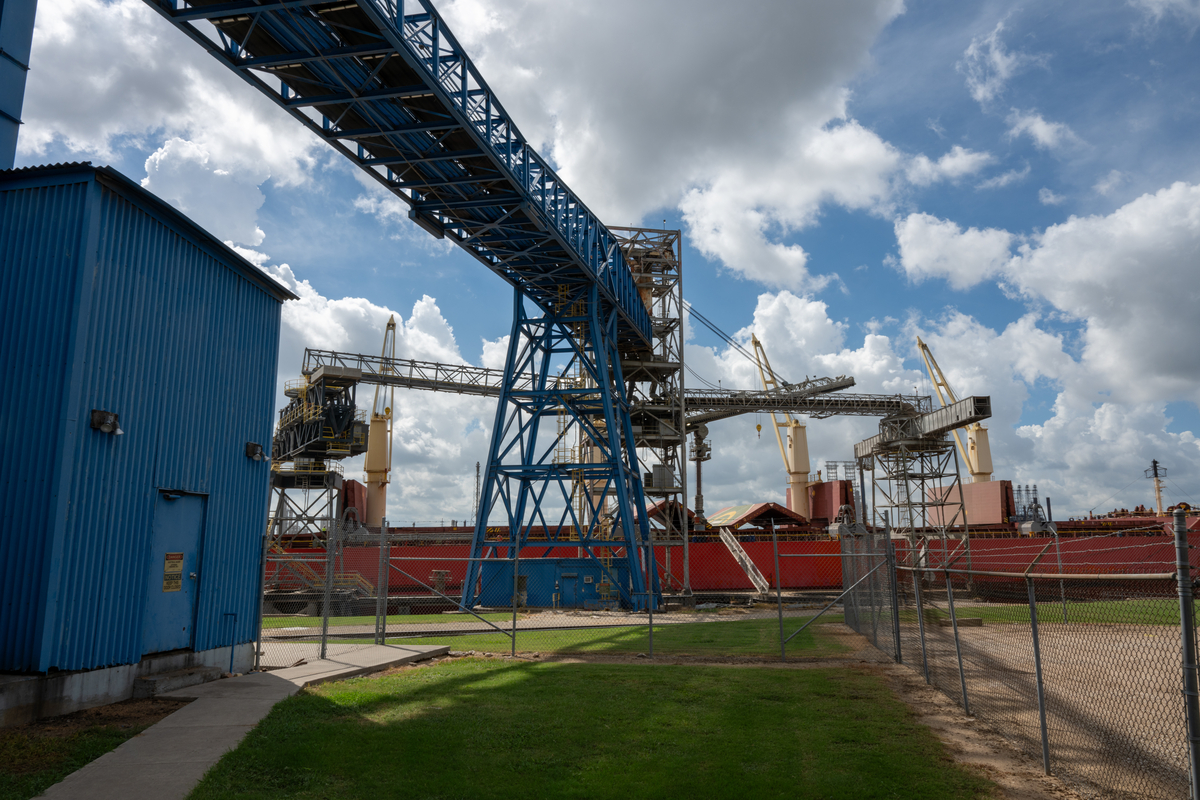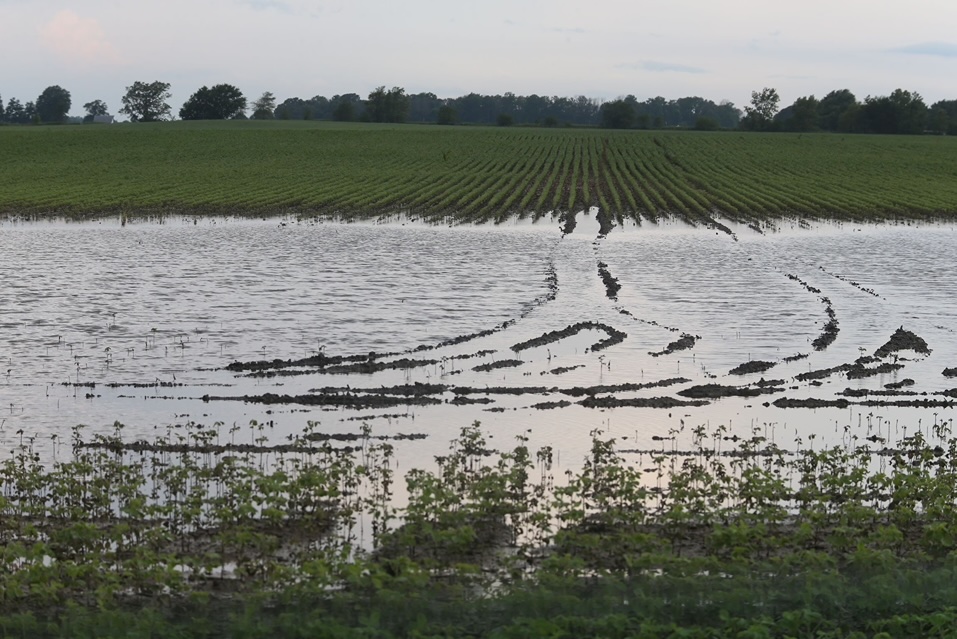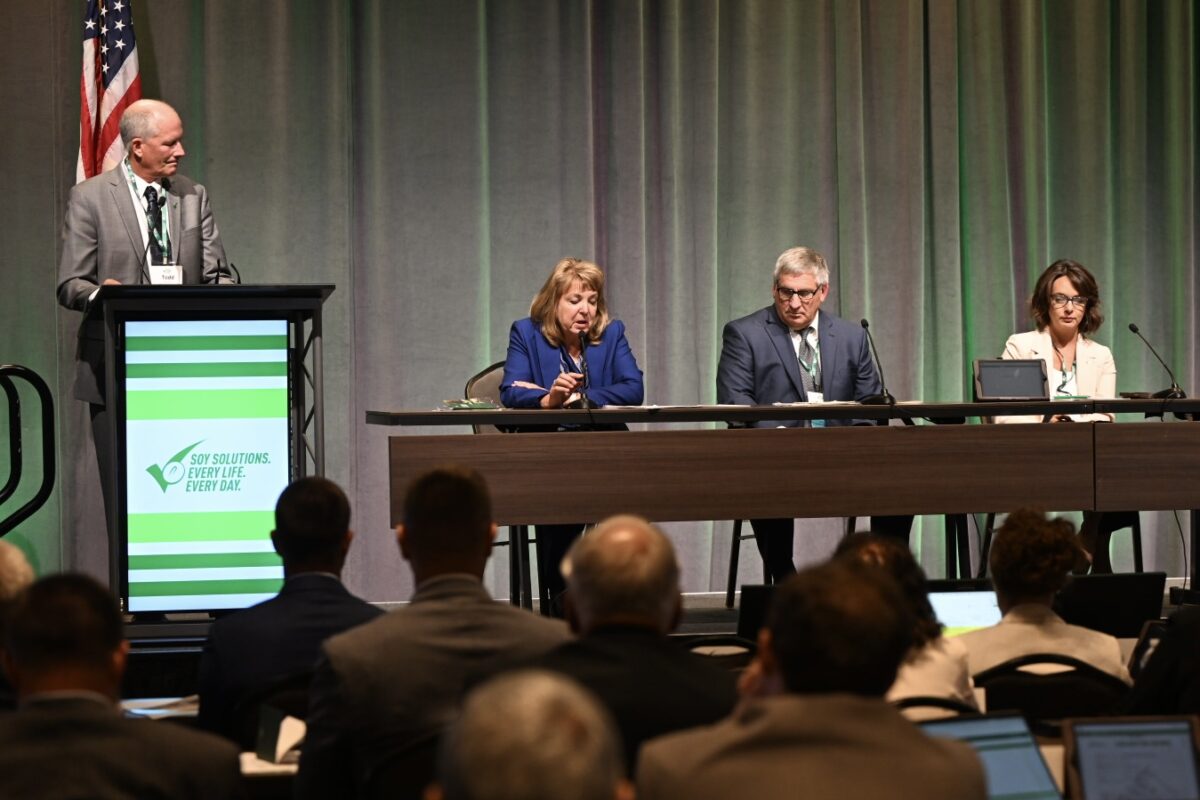Investing in Tomorrow’s Sustainability Tools Today

Checkoff Soy Innovation Challenge winner tackles farmer headaches
On your farm, you’re both the chief technology officer and the chief sustainability officer. You make decisions about which of the scores of farm tools are worth spending money on and which parcels of land would benefit the most from cover crops or irrigation. And it’s frustrating trying to make good decisions with incomplete or incompatible online data.
The 78 volunteer farmers who lead the soy checkoff know this frustration intimately — they face it on their farms. It’s why the checkoff is making investments that help make ag technology more accessible and functional for farmers.
The Soy Innovation Challenge, a recent soy checkoff partnership with The Yield Lab Institute, asked leaders in private industry to bring forward their best ideas to remake the soybean value chain to create increased profitability for farmers. Nearly 90 ag tech startups and teams entered the challenge with solutions ranging from blockchain to greenhouse gas monitoring. The grand prize winner, Regrow, is an ag technology company that reduces headaches for farmers and, ultimately, their customers, including food companies like General Mills.
An all-in-one tool
With so many proprietary systems on the market, one more tool hardly sounds like the solution. But a small group of experts in everything from visual drone navigation to conservation research disagree — and challenge you to consider their all-in-one solution: Regrow.
“Regrow makes it easier for farmers to prove their good practices and capture value for them,” says Anastasia Volkova, Regrow CEO and founder.
Kentucky soybean farmer and Past Chair of the soy checkoff, Keith Tapp, says that’s a benefit for farmers and for U.S. soy customers.
“U.S. soybean farmers have led the way for decades, adopting conservation practices like cover crops, no-till and innovations in plant breeding to grow soybeans sustainably,” says Tapp. “We don’t always get credit for the benefits our farm practices have on the environment. That’s a huge area of potential, and this challenge winner can help.”
The checkoff, alongside organizations including Syngenta, Amazon Web Services and ICL Group, sponsored the Soy Innovation Challenge. The challenge, hosted by The Yield Lab Institute, paired innovative companies from around the globe with industry groups to advance innovation for the soy industry and bring more value to soybean farmers.
For Regrow, the challenge interested Volkova for the access to farmers it offered. Regrow had already forged partnerships with organizations focused on providing advice to farmers, enabling them to provide more detailed and tailored agronomic recommendations.
“Traditionally, we don’t work directly with farmers, but with their support team. We supercharge the work of crop advisors and agronomists,” says Volkova. “The Soy Innovation Challenge was an interesting opportunity to work more closely with farmers and really demonstrate the value of Regrow to farmers themselves.”
Volkova saw the connection to the checkoff as a significant benefit to improving their product.
“Through collaboration with the soy checkoff, we were able to further understand how to tailor our product so it could be used as more of a self-serve system for farmers who want direct access,” she adds.
Regrow offers a decision support tool to farmers that doesn’t require a ton of setup time or yet another app to open.
“We employ technology to monitor the farm objectively and deliver advice to farmers in-season,” she says. “Regrow can help answer which fields are under stress and which ones need additional nutrients. And, at the end of the season, which of them need to be harvested in what order.”
Volkova says Regrow is one of the most interconnected platforms in ag tech. Integrations with popular farm management systems such as Climate FieldView and My John Deere make using Regrow simple. For many farmers, it’s just looking at the apps and monitors they’re already using. Publicly available satellite and weather data can help fill in any record gaps, from crop rotation data to planting dates.
Through the Soy Innovation Challenge, finalists like Regrow had opportunities to pitch their ideas to real soybean farmers and get direct feedback.
“Every time we would pitch, we received a couple of comments that really helped us understand the perspective of the farmers,” says Volkova. She remembers a farmer question from one of their first pitches that dug into the practicality of farmers accessing the system, as well as the potential to capture additional profit.
“Engagement like that indicates to me that farmers are looking for these opportunities,” Volkova says. “They want something that doesn’t burden them further but enables them to capture additional profitability. And they want it to enable their partners to have insight into the situation at scale.”
Industrywide insights
At the other end of the supply chain from Regrow’s farmer and farm advisor customers, the company also partners with a variety of organizations interested in understanding the sustainability of agricultural supply chains, from General Mills to The Nature Conservancy.
According to Volkova, because Regrow provides value to farmers as well as end users, the company is a valuable partner to organizations like the soy checkoff.
“Our primary value proposition to the checkoff and to other stakeholders along the supply chain is quantification and verification. We have the ability to measure and verify to make stronger claims about the provenance of U.S. soy, demonstrating the numbers behind the claims,” Volkova says.
All of this is possible without a cumbersome data entry process for farmers or a requirement that farmers share identifiable data downstream.
“The data that goes down the supply chain is only what’s required, and that’s not direct farm management records,” says Volkova. “We gather a lot of data from publicly available sources like satellite imagery and weather data. We analyze it using our tools to support companies like General Mills in understanding what the adoption of sustainable practices looks like.”
Tapp says the data Regrow is able to provide could have a big impact on soybean markets in the years to come.
“The vast majority of U.S. soybean farmers already participate in the robust conservation programs available to reduce negative impacts like soil erosion and protect resources like water,” he says. “Having the data to prove that impact to end users is invaluable.”
Aggregated farmer data can validate the publicly available data. But, Regrow does not have to rely on individual farmer data to produce the information needed by their demand-side customers.
“We’re not passing identifiable data to anyone downstream. For example, if farmers wanted to enter in their nitrogen application records, they can do so to enhance the recommendations the platform gives to them in-season. But that data isn’t used anywhere else,” Volkova says.
Looking back, looking forward
Volkova says she’s glad she and her team took the chance to enter the Soy Innovation Challenge. As the grand prize winner, the company received a $100,000 cash prize as well as entrepreneurial networking and business coaching.
“The opportunity was very enticing,” says Volkova. “Not even so much for the prize money as for the ability to work with the volunteer board of soybean farmers leading the checkoff into a new era.”
All the funding the company receives at this stage, according to Volkova, is going toward further development of Regrow’s FluroSense platform and agronomy, sustainability and carbon offerings to provide a better service to farmers. Next on the list is expanding a team of digital agronomists to serve as customer support for their users. The team is also engaging with the checkoff to explore opportunities to support several of the Qualified State Soybean Boards.
Much like Volkova, Tapp sees endless possibilities as the checkoff continues to participate in initiatives like the Soy Innovation Challenge to support chief technology and sustainability officers on their farms across the country. “The soy checkoff is committed to supporting these partnerships to give farmers access to new technology for their farms,” says Tapp, who served a critical role overseeing this year’s challenge on the checkoff’s Strategic Management Committee. “Innovations like Regrow will make a positive impact on U.S. soybean farmers well into the future.”



